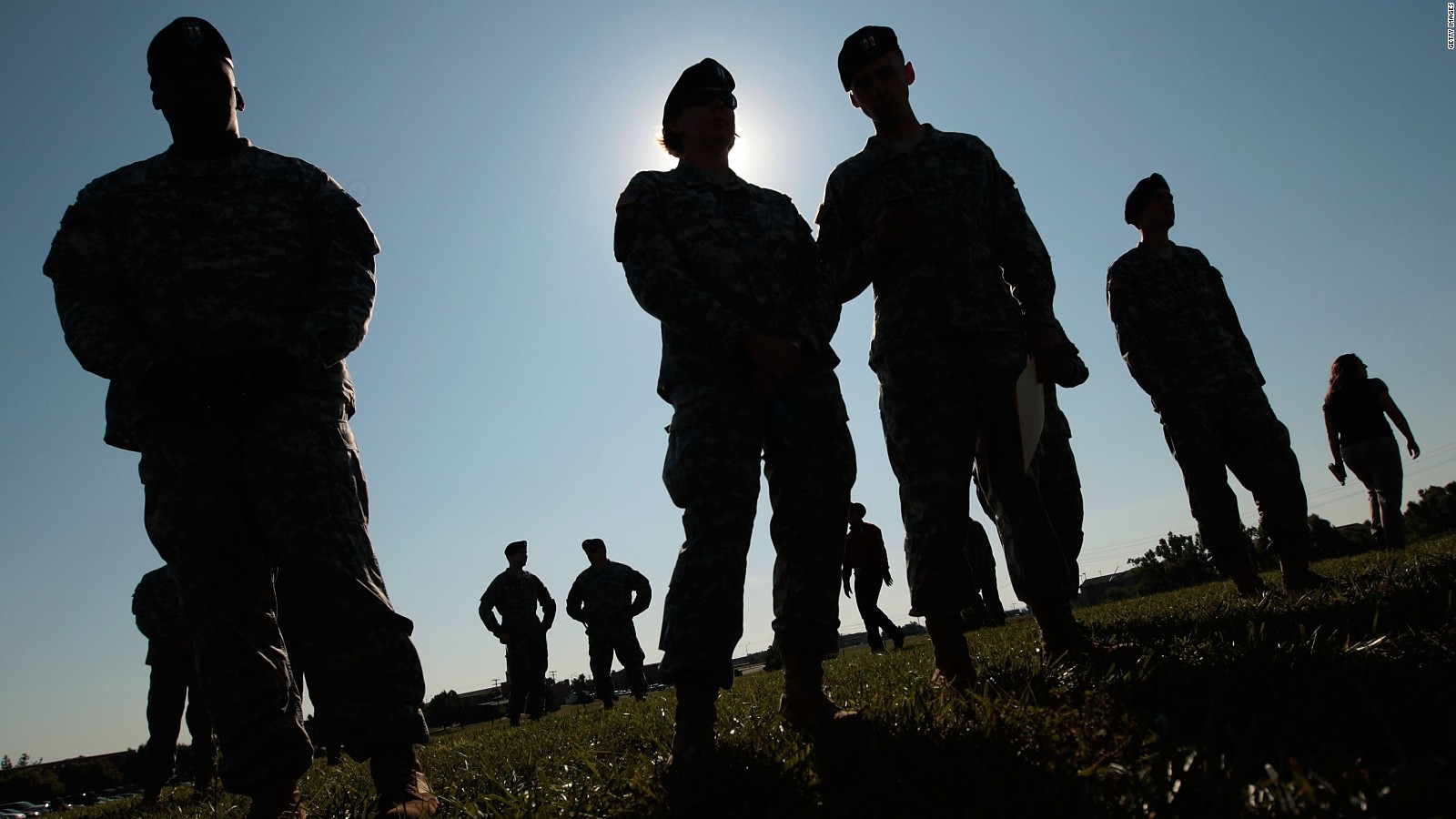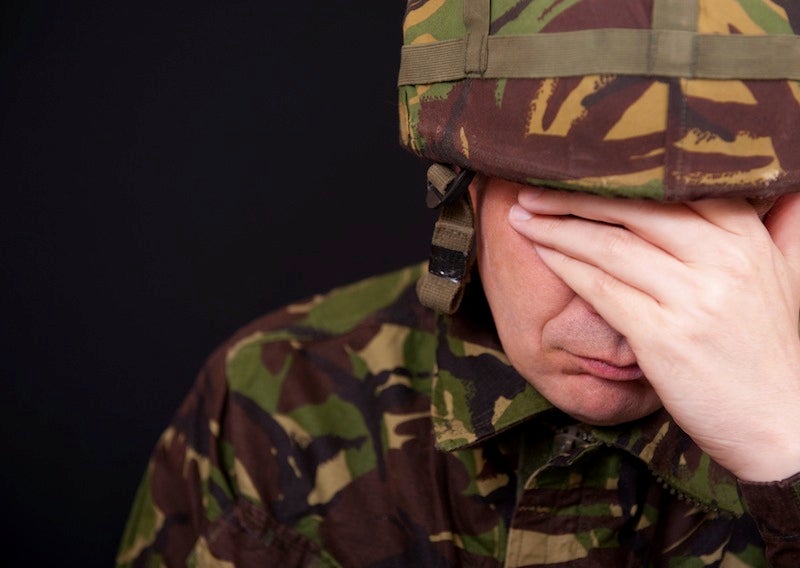PTSD Soldier Meme: A Look At The Intersection Of Trauma, Humor, And Awareness
Let me start by saying this: PTSD soldier meme might sound like a weird topic to dive into, but trust me, it’s more important than you think. In today’s world, where social media dominates our lives, memes have become a powerful tool for communication. They’re not just funny pictures; they’re a way to share emotions, experiences, and even raise awareness about serious issues. And when it comes to PTSD in soldiers, memes can play a crucial role in sparking conversations that matter.
Post-Traumatic Stress Disorder (PTSD) is something that affects countless soldiers around the world. It’s a mental health condition triggered by terrifying events, and for many veterans, it’s a daily battle. But here’s the thing—humor has always been a coping mechanism. Soldiers use humor to deal with stress, and now, in the age of the internet, memes have become a new form of that humor. These memes aren’t just jokes; they’re a way to connect, heal, and educate.
So, why are we talking about PTSD soldier memes? Because they’re more than just viral images. They’re a reflection of the struggles faced by veterans, and they’re helping to break the stigma surrounding mental health. In this article, we’re going to explore the impact of these memes, how they’re shaping public perception, and why they matter so much. Let’s dive in.
Read also:Lola Iolani Momoa The Rising Star Of Hollywood
Table of Contents:
• Biography of PTSD
• Understanding PTSD in Soldiers
• The Rise of Meme Culture
• The Role of Memes in Mental Health Awareness
• Examples of PTSD Soldier Memes
• Benefits of Using Memes for Awareness
• Criticism Surrounding PTSD Memes
• Data on PTSD in Veterans
• Resources for Veterans with PTSD
• Conclusion: Why Memes Matter
Biography of PTSD
What is PTSD?
PTSD, or Post-Traumatic Stress Disorder, is a mental health condition that can develop after someone experiences or witnesses a traumatic event. For soldiers, this often happens during combat, but it can also occur due to other life-threatening situations. The symptoms of PTSD vary but commonly include flashbacks, nightmares, severe anxiety, and uncontrollable thoughts about the event.
Now, let’s break it down. PTSD isn’t just about feeling scared or sad after a tough experience. It’s a complex condition that affects how the brain processes emotions and memories. And for soldiers, who often face unimaginable situations, PTSD is a very real and prevalent issue. According to the U.S. Department of Veterans Affairs, around 11-20% of veterans who served in Operations Iraqi Freedom and Enduring Freedom have PTSD in a given year.
But here’s the kicker—PTSD isn’t just a soldier’s problem. It affects millions of people worldwide, from survivors of natural disasters to victims of violence. And while the military community has been at the forefront of PTSD awareness, the stigma surrounding mental health still exists. This is where memes come in—they’re breaking down those walls one laugh at a time.
Understanding PTSD in Soldiers
The Soldier Experience
Imagine being in a war zone, surrounded by chaos, danger, and uncertainty. That’s the reality for many soldiers, and it’s no wonder PTSD is so common in the military. The stress of combat, the loss of comrades, and the constant fear for your life can take a toll on anyone. But what happens when they come home? For many veterans, the battle doesn’t end when they leave the battlefield.
PTSD in soldiers manifests in different ways. Some may struggle with anger management, while others might avoid social situations altogether. The condition can also lead to substance abuse, depression, and even suicide. According to the VA, about 20 veterans die by suicide each day—a statistic that’s both heartbreaking and alarming.
Read also:Isabeau Musk The Rising Star Redefining Modern Music
So, how do soldiers cope? Some turn to therapy, medication, or support groups. But others find solace in something a little more unconventional—memes. These humorous images and videos might seem trivial, but they’re actually a powerful tool for connection and healing.
The Rise of Meme Culture
Why Memes Matter
Memes have taken over the internet, and for good reason. They’re quick, relatable, and often hilarious. But beyond the laughs, memes have the power to convey complex emotions and ideas in a way that’s easy to digest. And when it comes to PTSD soldier memes, they’re doing just that.
These memes often use humor to address serious topics, making them more approachable for people who might not understand the struggles of PTSD. They can also provide a sense of community for veterans who feel isolated or misunderstood. By sharing a meme, soldiers can connect with others who’ve had similar experiences, creating a support network that’s both online and offline.
But it’s not all about the laughs. Memes can also educate the public about PTSD, dispelling myths and stereotypes along the way. For example, a meme might show a soldier dealing with a trigger in a humorous way, but the underlying message is clear—PTSD is real, and it affects real people.
The Role of Memes in Mental Health Awareness
Breaking the Stigma
One of the biggest challenges in mental health awareness is breaking the stigma. Many people still view mental health issues as a sign of weakness, and this couldn’t be further from the truth. Soldiers, in particular, are often expected to be tough and resilient, making it even harder for them to seek help.
This is where memes come in. By using humor to address serious topics, they’re helping to normalize conversations about mental health. A meme might joke about the struggles of dealing with PTSD, but it’s also sending a powerful message—that it’s okay to not be okay. And that’s huge.
Moreover, memes can reach a wider audience than traditional forms of media. They’re shared on social media platforms like Instagram, Twitter, and Reddit, where millions of people are already engaging with content. This means that PTSD soldier memes have the potential to reach people who might not otherwise be exposed to these issues.
Examples of PTSD Soldier Memes
Humor with a Message
Let’s take a look at some examples of PTSD soldier memes. These aren’t just random jokes—they’re carefully crafted to convey a message while still being funny. Here are a few:
- The Trigger Meme: This meme shows a soldier reacting to a loud noise, with the caption “When someone drops a pan in the kitchen.” It’s a humorous take on a common PTSD trigger, but it also highlights the reality of living with the condition.
- The Therapy Meme: This one shows a soldier sitting in a therapist’s office, saying “I just need to talk about my feelings… like, for three hours.” It’s a lighthearted way to address the importance of therapy in managing PTSD.
- The Survivor Meme: This meme features a soldier holding a medal, with the caption “When people say I’m a hero, but I just want to be normal.” It’s a powerful reminder that soldiers are more than just their experiences—they’re human beings with complex emotions.
These memes might seem simple, but they’re doing important work. They’re starting conversations, raising awareness, and most importantly, they’re helping soldiers feel seen and heard.
Benefits of Using Memes for Awareness
Why Humor Works
So, why are memes so effective in raising awareness about PTSD? There are a few reasons. First, humor is a universal language. It transcends cultural and linguistic barriers, making it easier for people to connect with the content. Second, memes are shareable. They can be easily shared on social media, reaching a wider audience than traditional forms of media.
But the real magic happens when memes combine humor with a serious message. By using laughter as a tool, they can make difficult topics more approachable. And when people feel comfortable discussing mental health, they’re more likely to seek help when they need it.
Plus, memes are a form of self-expression. For soldiers who might struggle to put their feelings into words, a meme can be a powerful way to communicate their experiences. It’s a way to say, “I’m not alone in this,” and that’s incredibly valuable.
Criticism Surrounding PTSD Memes
The Dark Side of Humor
Of course, not everyone is a fan of PTSD soldier memes. Some critics argue that humor can trivialize serious issues, making light of something that should be taken seriously. And while it’s true that some memes might cross the line, the majority are created with good intentions.
It’s important to remember that humor is subjective. What might seem funny to one person could be offensive to another. That’s why it’s crucial for meme creators to be mindful of their audience and the message they’re trying to convey. A well-crafted meme can spark meaningful conversations, but a poorly executed one can do more harm than good.
That said, the benefits of PTSD soldier memes far outweigh the risks. They’re a powerful tool for awareness, connection, and healing, and they’re helping to break down the stigma surrounding mental health. And in a world where veterans are still struggling to get the support they need, that’s a big deal.
Data on PTSD in Veterans
The Numbers Don’t Lie
Let’s take a look at some data on PTSD in veterans. According to the National Center for PTSD:
- About 7-8% of the U.S. population will experience PTSD at some point in their lives.
- Among veterans of the Vietnam War, an estimated 30% have experienced PTSD in their lifetime.
- For veterans of the Gulf War, the prevalence of PTSD is around 12%.
These numbers are staggering, and they highlight the urgent need for better mental health support for veterans. But they also show why memes are so important. By raising awareness and breaking the stigma, they’re helping to create a world where veterans feel supported and understood.
Resources for Veterans with PTSD
Where to Turn for Help
If you or someone you know is struggling with PTSD, there are resources available. Here are a few:
- Veterans Crisis Line: Call 988 and press 1 for confidential support 24/7.
- VA Mental Health Services: The VA offers a range of mental health services for veterans, including therapy and medication management.
- PTSD Coach App: This app provides tools and resources for managing PTSD symptoms.
Remember, seeking help is a sign of strength, not weakness. And with the right support, recovery is possible.
Conclusion: Why Memes Matter
PTSD soldier memes might seem like a small thing, but they’re making a big impact. They’re helping to break the stigma surrounding mental health, raise awareness, and connect veterans who might otherwise feel isolated. And in a world where mental health support is still lacking, that’s a huge deal.
So, the next time you see a PTSD soldier meme, take a moment to appreciate its power. It’s more than just a funny picture—it’s a tool for change. And if you’re a veteran or know someone who is, don’t hesitate to reach out for help. You’re not alone, and there are people who care about you and want to support you.
Finally, I’d like to leave you with a call to action. Share this article, leave a comment, or start a conversation about PTSD soldier memes. The more we talk about mental health, the closer we get to a world where everyone feels seen, heard, and supported. And that’s a world worth fighting for.


